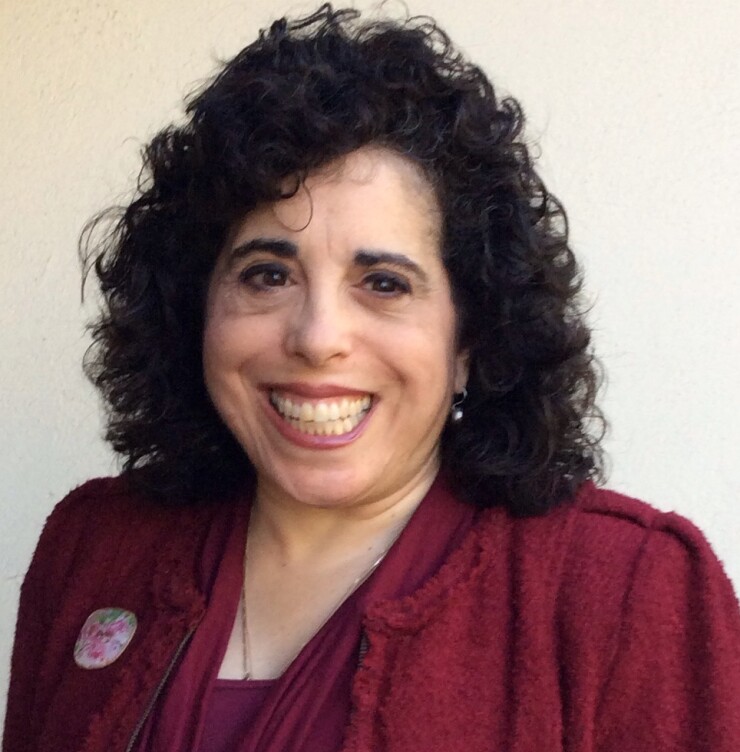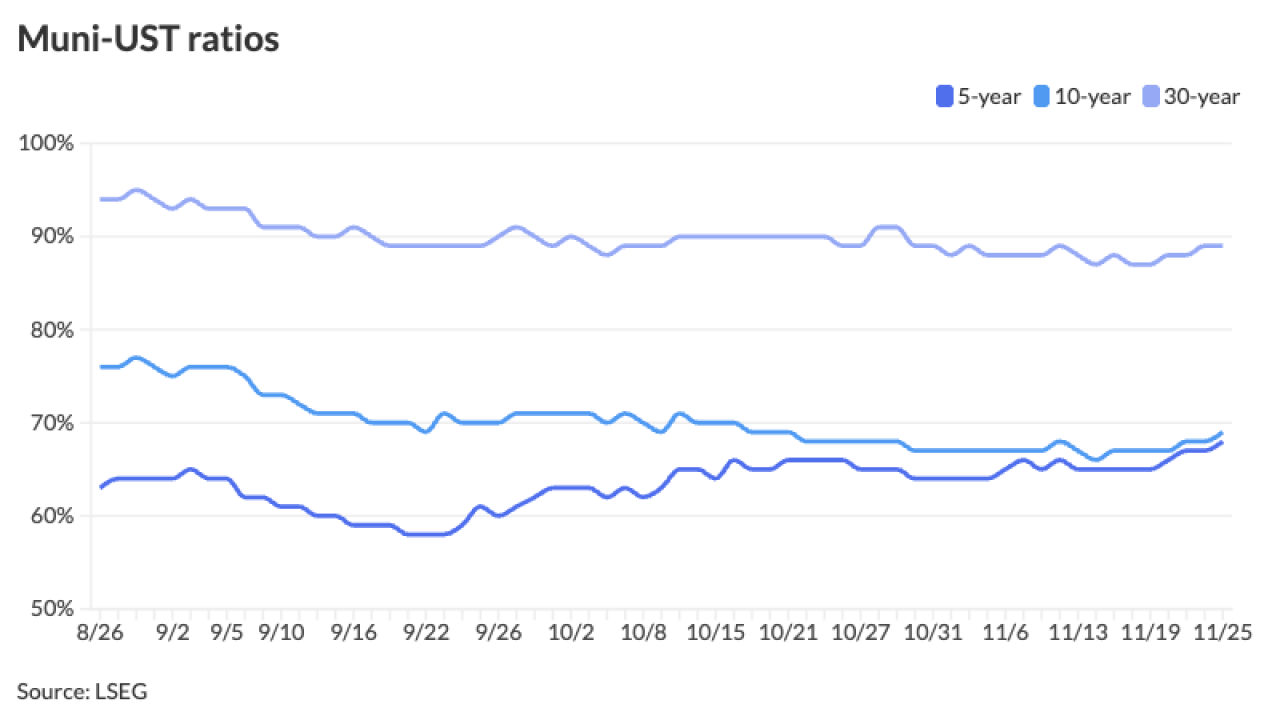Less than half of the 211 registered participants showed up for Monday's Los Angeles Regional Investors conference in the wake of the COVID-19 outbreak.
The city made the decision to go ahead with the fifth edition of the conference it holds every two years because it had already incurred the costs, and because the Centers for Disease Control and Prevention has not recommended people cease taking domestic flights, said Natalie Brill, Los Angeles' debt manager.

Though the CDC has recommended against flights to China, Italy and South Korea, it hasn’t recommended that people cease flying in the continental U.S.
“They aren’t saying stay home unless you have flu-like symptoms,” said Natalie rill, the city's debt manager. “Their recommendations have been to wash your hands and cover your mouth when you cough.”
Many firms have implemented policies to limit non-essential travel in an effort to slow the spread of the novel coronavirus that causes COVID-19. Domestic air reservations have plummeted, and major airlines have announced domestic schedule cuts in response to the lack of demand.
Brill emailed participants with information from the CDC last week and announced the conference would continue as planned.
Los Angeles Mayor Eric Garcetti declared a health emergency for COVID-19 on Wednesday, saying the step was all about preparedness. It allows the city to secure additional state and federal funding and resources needed to prepare for COVID-19, Brill said.
On Monday, the Los Angeles County Department of Public Health confirmed the county's 15th and 16th COVID-19 cases; one of the cases is believed to be the first possible known case of community transmission in the county. A national shortage of testing supplies means the actual number of people in the United States with COVID-19 cases is likely far higher than the 423
Most of the cancellations for LA’s conference were investors who had planned to fly across the country to attend, Brill said.
Richard Llewellyn, the city administrative officer, also stayed home as he was suffering from a cold, but decided it was not a good idea to attend given the current climate, said Brill, who handled the introduction in the CAO’s absence.
Garcetti welcomed investors through a video speech. The mayor was originally on the schedule, but notified Brill a few weeks ago that he had a conflict, she said. His absence was unrelated to the outbreak.
“I was very happy that the mayor produced a video,” Brill said. “It worked out, because around the time the mayor canceled, (State) Treasurer Fiona Ma said she would be able to speak.”
Ma, the keynote speaker at the event, shared with investors the current economic condition of the state, but said nothing she said could be construed as “speaking to the market,” because the state has $2.2 billion in bonds pricing this week.
She relayed a laundry list of risks to a balanced budget, including the threat of recession.
Among those risks is the coronavirus, which California included as a risk in the preliminary offering documents for the state's general obligation bond sale this week.
“The national economy is enjoying the longest recovery, but the risk of recession remains,” Ma said.
Other risks to the California economy she mentioned are capital gains volatility resulting from a stock market correction like the one experienced last week or an extended decline in the stock market, the coronavirus, global tensions that could trigger slowing in the national economy, changes in federal policy that affect funding for state programs, a trade war and the potential for an undercount in the census for the state.
On the bright side, Ma said debt service is expected to be less than 5.6% of the general fund for the upcoming fiscal year.
“That is a sharp drop from when it comprised 9% of the general fund following the Great Recession,” Ma said.
At least two other municipal market-focused events are off because of COVID-19: an





